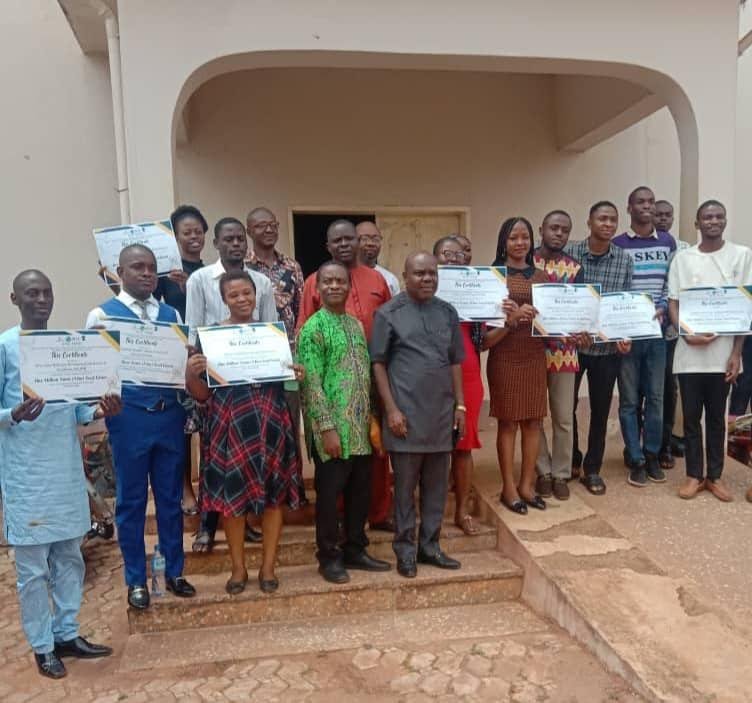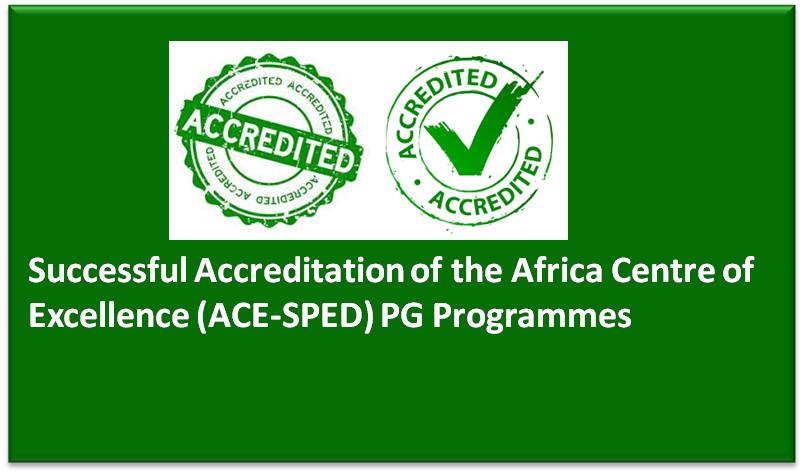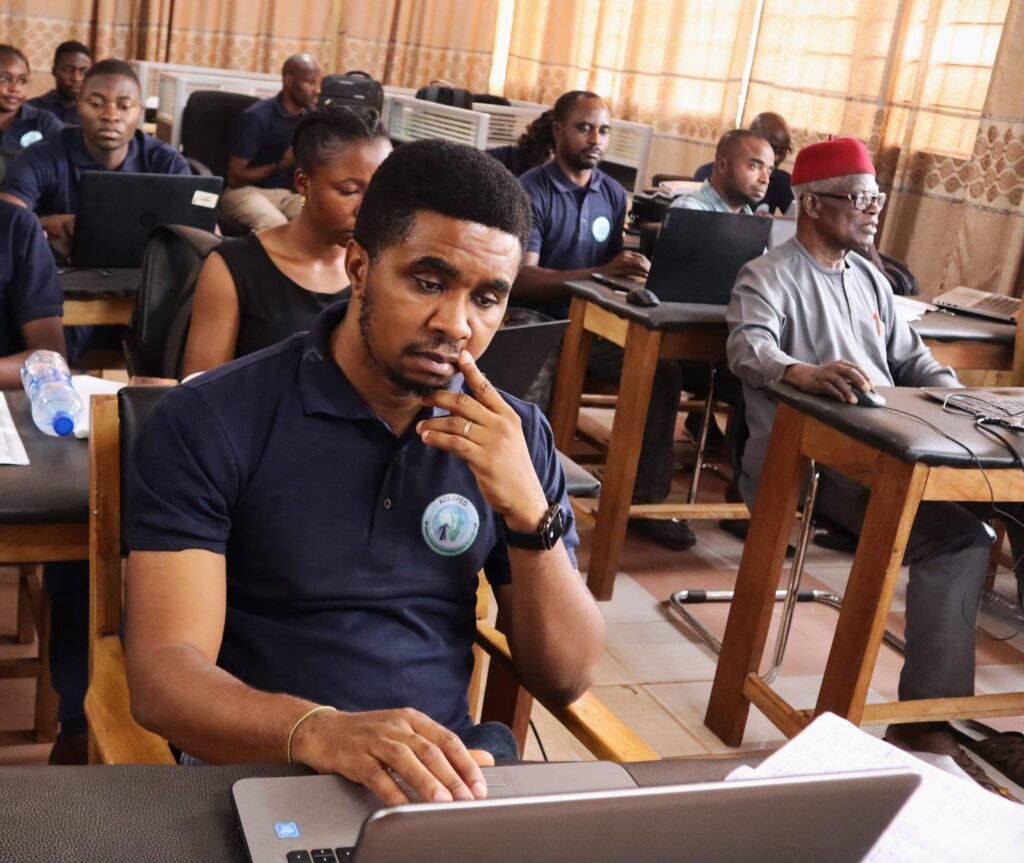
The Africa Centre of Excellence for Sustainable Power and Energy Development (ACE-SPED) at the University of Nigeria, Nsukka (UNN) has launched 10 new professional short courses designed to strengthen Africa’s capacity in sustainable energy, digital innovation, and applied technology.
This new academic initiative marks a strategic effort to bridge the gap between research, education, and industry practice—ensuring that professionals across sectors are equipped with hands-on skills to navigate Nigeria’s energy transition and the broader digital economy.
According to Professor Emenike Ejiogu, Director of ACE-SPED, the programmes were carefully developed to meet the growing demand for technical expertise in renewable energy, industrial automation, and innovation management. “These courses are compact but intensive,” he said. “Each is designed to offer real-world skills through practical engagement, not just theory. We are preparing participants to lead Africa’s sustainable energy revolution.”
Unlike full postgraduate programmes, the short courses are flexible—running for 40 hours to three months—and are open to professionals, entrepreneurs, policymakers, and researchers seeking quick, high-impact training with industry relevance.

Table of Contents
Practical Courses for a Changing Energy and Innovation Landscape
The new courses reflect ACE-SPED’s deep understanding of Africa’s rapidly evolving energy and technology environment. They include:
- Management of Technology and Innovation – a leadership-focused course on integrating innovation into organisational processes.
- Industrial Automation and Instrumentation – covering robotics, process control systems, and smart sensors for improved productivity.
- Energy Management, Policy and Regulation – providing insights into Nigeria’s and Africa’s regulatory energy frameworks.
- Material Characterisation – exploring techniques for assessing materials used in solar panels, batteries, and advanced technologies.
- Bio-energy Technologies – focused on renewable energy derived from organic and waste materials.
- Design and Installation of Solar PV Mini-Grid and Stand-alone Systems – training participants to implement sustainable off-grid power solutions.
- Renewable Energy Applications for Improved Agricultural Production – integrating clean-energy solutions in farming systems to boost food security.
- Digital Education – empowering educators to adopt e-learning and digital teaching methodologies.
- 3D Printing (Additive Manufacturing) – offering practical training on modern digital manufacturing techniques.
- Digital Content Creation and Editing – equipping participants with creative and technical skills for online media.
Professor Ejiogu stressed that the courses are not copied from foreign templates but are contextually adapted to Africa’s realities. “We are training Africans for African problems—energy poverty, underdeveloped industries, digital divides. Our solutions must fit our environment,” he noted.
These courses are set to begin in early 2026, with flexible enrolment windows throughout the year. Certificates will be awarded upon completion, validating participants’ professional competence in their chosen fields.

Driving Collaboration Between Academia, Industry, and Government
Beyond technical training, ACE-SPED’s short-course initiative embodies the university’s broader vision of aligning higher education with national development goals.
The Centre—funded under the World Bank’s Africa Centres of Excellence (ACE) programme—has earned continental recognition for advancing research and human-capital development in renewable energy and sustainable technology. By introducing short courses, ACE-SPED aims to connect academia directly with industry needs and accelerate innovation-driven growth.
Professor Ejiogu explained that energy and technology are the twin pillars of modern development. “Without energy, industry cannot grow. Without innovation, we cannot compete globally. These courses prepare participants to drive both.”
He emphasised that collaborations with energy companies, government agencies, and global development partners will ensure that the training remains relevant and up-to-date. The goal is to produce problem-solvers and innovators, not just certificate holders.
The courses will also serve as platforms for research-industry partnerships, internships, and pilot projects that demonstrate how academic knowledge can transform real-world challenges—especially in renewable energy adoption, rural electrification, and digital transformation.

A Timely Boost for Nigeria’s Energy Transition and Digital Future
Nigeria’s growing energy deficit and youth unemployment challenge demand fresh approaches to education and skills development. ACE-SPED’s intervention comes at a critical time when both energy sustainability and technological innovation are top priorities in the country’s development agenda.
Experts say that short, skills-oriented programmes like these could help close Nigeria’s professional gap in renewable-energy engineering, energy policy, digital education, and automation—areas where talent demand far exceeds supply.
The “Design and Installation of Solar PV Systems” course, for example, is expected to attract engineers and entrepreneurs working in off-grid power solutions—one of Nigeria’s most promising growth sectors. Likewise, the “Digital Education” and “3D Printing” programmes are seen as crucial in preparing the next generation for jobs that blend creativity, technology, and innovation.
Industry observers also note that such programmes could encourage self-employment. “When you learn practical renewable-energy design or digital content production, you can build a career or start a business right away,” said one of the course coordinators. “It’s education that translates into direct economic empowerment.”
The launch underscores UNN’s commitment to remain a pioneer in science, technology, and innovation across Africa. By nurturing skilled manpower for the clean-energy economy, the institution is helping Nigeria achieve Sustainable Development Goal 7—“Affordable and Clean Energy”—and SDG 9, which promotes innovation and infrastructure.
As the world transitions to cleaner energy systems, ACE-SPED’s initiative represents a forward-thinking model of African-led capacity building—one that blends academic excellence, technological relevance, and social impact.
In the words of Professor Ejiogu:
“Our vision is to produce people who can turn knowledge into solutions, innovation into jobs, and research into power for progress. Sustainable energy is not just an academic subject—it’s a survival issue for our continent.”
Join Our Social Media Channels:
WhatsApp: NaijaEyes
Facebook: NaijaEyes
Twitter: NaijaEyes
Instagram: NaijaEyes
TikTok: NaijaEyes
READ THE LATEST EDUCATION NEWS




